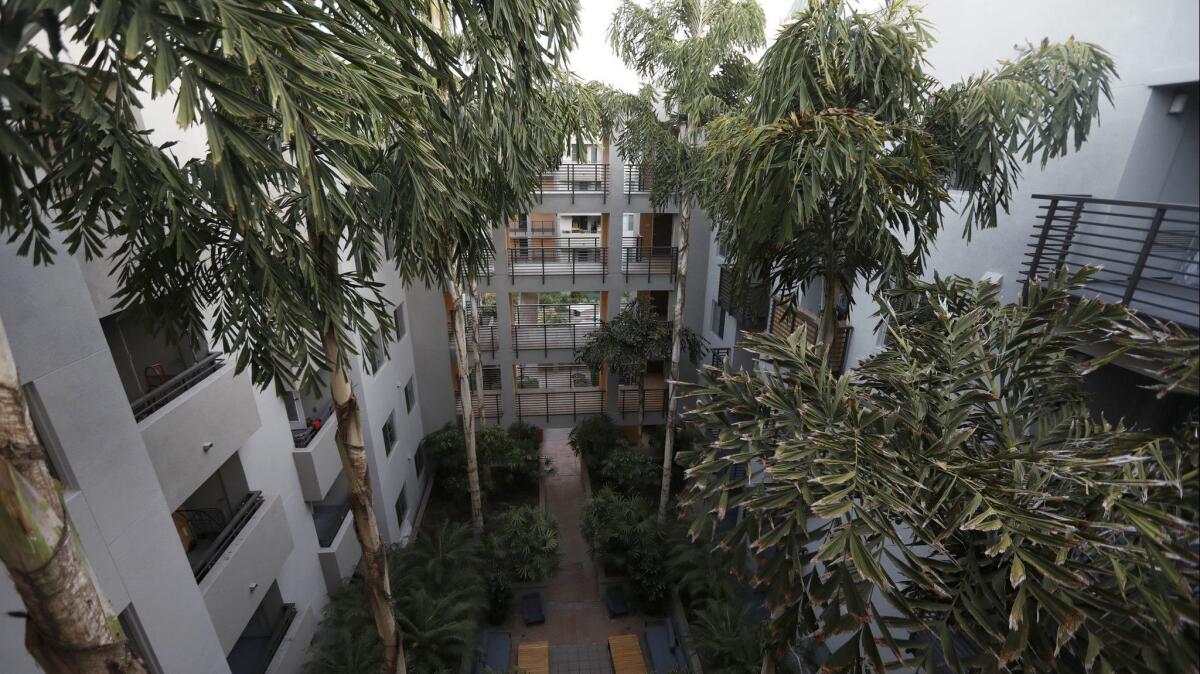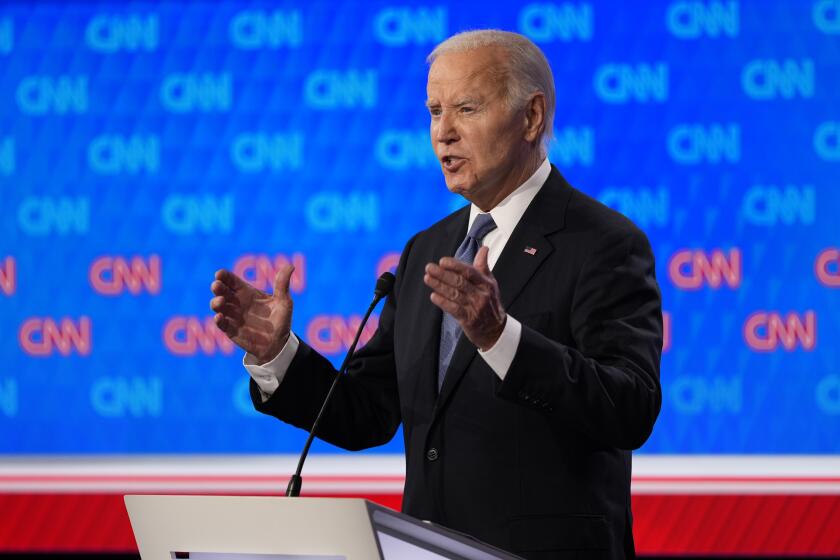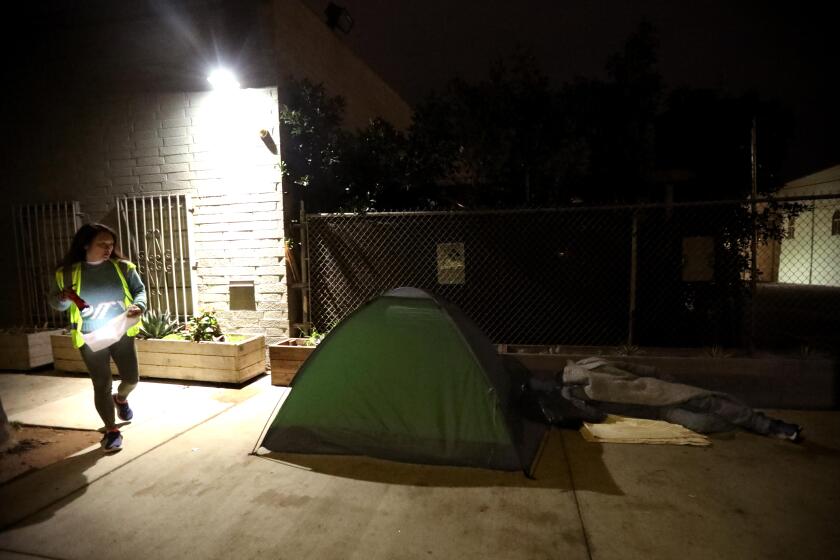Editorial: California needs to build affordable housing. Its racist Article 34 makes that too difficult

California voters have consistently backed the building of affordable housing, and they have been generous in paying for it. Since 1988, the state has passed seven housing bonds worth more than $9 billion to fund the construction of homes for seniors, the homeless, farmworkers and low-income families.
Yet despite voters’ steady support, there remains a terrible, crisis-level shortage of affordable housing for middle- and low-income Californians — and a provision in the state Constitution that makes it unnecessarily difficult to build that housing.
That provision — Article 34 — was adopted in 1950 amid a racist, classist backlash against public housing. It requires that cities get voter approval before they build “low-rent housing” funded with public dollars.
Giving voters the right to veto public housing was another way to let them bar low-income and minority residents from living in their communities.
Three times in the past, voters have been asked to eliminate or weaken Article 34. And each time they have failed to do so. (The last effort was in 1993.) Now, there’s a new effort, championed by Los Angeles Mayor Eric Garcetti. State Sen. Ben Allen (D-Santa Monica) has introduced a bill that would put a constitutional amendment on the ballot as soon as 2020. Garcetti and others think the state’s housing crisis, coupled with its increasingly progressive politics, will convince voters finally to repudiate the law.
Article 34 was most damaging in its initial years. By 1968, voters across the state had turned down nearly half the public housing that had been proposed, and many public housing agencies shelved projects rather than put them to a vote.
A Department of Housing and Urban Development report at the time found that California had the nation’s largest population of poor people but ranked 22nd in the amount of housing available to them. Article 34 was cited as one reason for the lack of affordable rentals.
In the years since then, however, public housing has changed. The model of government-funded, government-built housing has largely been replaced by public-private partnerships, in which developers build affordable housing with a mix of taxpayer and private dollars.
California developers and cities have found ways to get around the constraints of Article 34, and some jurisdictions may be ignoring it altogether. Courts have decided that cities and counties may hold elections to authorize an overall number of public housing units to be built, rather than go to voters for each individual project. That has made it easier to get Article 34 approvals. By the early 1990s, about 80% of Article 34 votes were being approved, according to a state report from that era.
Article 34 is not as much of an obstacle as it once was, but it still creates a legal risk and an unnecessary bureaucratic hurdle at a time when California desperately needs more affordable housing.
Los Angeles, for example, got voter approval in 2008 to allow up to 3,500 public housing units per council district. But now, with L.A. on a campaign to build 10,000 units of homeless housing, some neighborhoods are close to the cap. Rather than go back to voters for another Article 34 authorization, Garcetti wants to wipe the law off the books altogether.
There’s another reason to repeal Article 34: It was rooted in racism and fear of poor people.
Enter the Fray: First takes on the news of the minute »
A real estate industry group drafted the original initiative that required voter approval for public housing. It was framed as a way for residents to preserve “local control.” But the campaign also warned that public housing was a form of socialism and a threat to capitalism and that it was being pushed by “minority pressure groups.” This was an era when racial discrimination in housing was legal and the Realtors’ Code of Ethics included a provision barring agents from integrating neighborhoods if doing so would be “detrimental to property values.”
Giving voters the right to veto public housing was another way to let them bar low-income and minority residents from living in their communities — although it was all cynically wrapped in the guise of grass-roots democracy. Article 34 is relic of a darker time in California’s history, to be sure, but the state still struggles with the sentiment behind it and the use of “local control” to block housing for the poorest, neediest residents.
It’s time for lawmakers and voters to strike Article 34 from the state Constitution and make it easier to build inclusive, affordable, much-needed housing for all Californians.
Follow the Opinion section on Twitter @latimesopinion and Facebook
More to Read
A cure for the common opinion
Get thought-provoking perspectives with our weekly newsletter.
You may occasionally receive promotional content from the Los Angeles Times.






